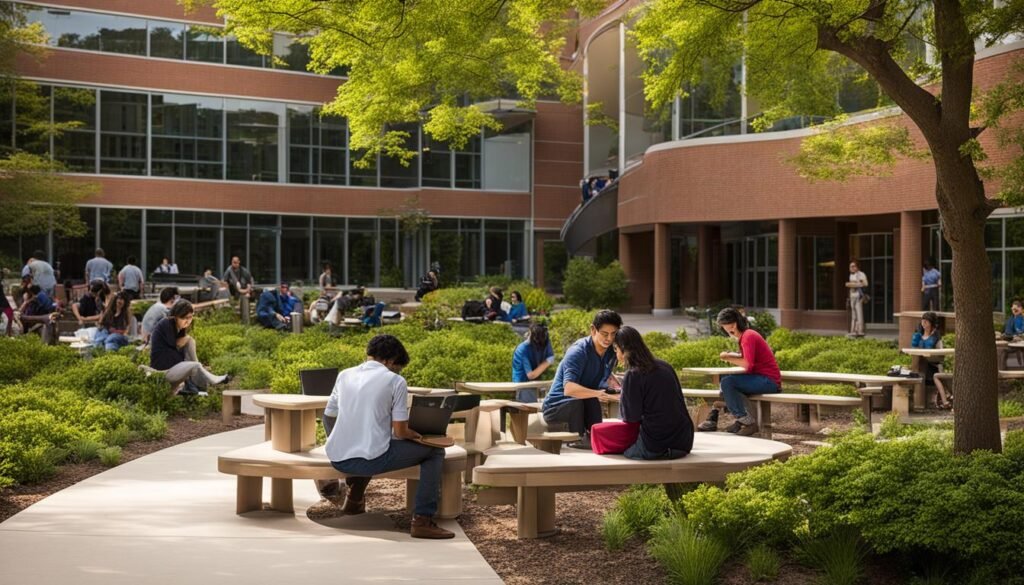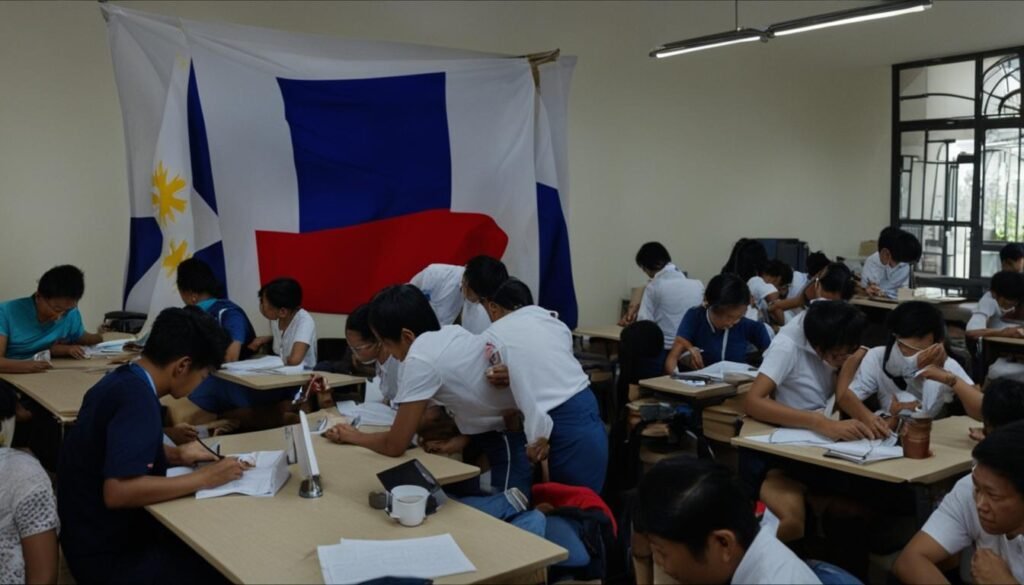When it comes to your academic future, the professors you choose can make a significant impact on your success. Registering for classes without researching potential professors might seem like a small decision, but it can have long-term consequences. By taking the time to research and select the right professors, you can unlock educational opportunities and make informed decisions about your academic journey.
So, how can you research potential professors before registering in the Philippines? It’s essential to look beyond course titles and descriptions and delve into the qualifications, experience, and teaching methods of the professors who will guide your learning. This article will provide valuable insights into the process, allowing you to make educated decisions and set yourself up for academic success.
Key Takeaways:
- Researching potential professors is crucial for academic success.
- Take the time to look into their qualifications, experience, and teaching methods.
- Make informed decisions about your academic journey.
- Set yourself up for success by selecting the right professors.
- Unlock educational opportunities through thorough research.
Faculty Classifications and Ranks at UP Diliman
The teaching staff at UP Diliman is categorized into regular and non-regular members. This classification ensures that the faculty consists of educators with diverse qualifications and expertise.
The regular members of the faculty at UP Diliman include instructors, assistant professors, associate professors, and professors. These ranks signify different levels of experience, teaching competence, research productivity, and engagement in department and university activities.
On the other hand, non-regular members comprise lecturers, visiting professors, and adjunct professors. These individuals bring unique perspectives and industry experience to the academic environment.
Each faculty rank has specific expectations and requirements. Instructors, for example, are focused on teaching and are usually at the early stages of their academic career. Assistant professors have more experience and are expected to contribute to research and publication efforts. Associate professors possess a higher level of expertise and actively participate in department and university affairs. Professors are recognized as leaders in their field and make significant contributions to the academic community.
The faculty classifications and ranks at UP Diliman contribute to the quality and qualifications of professors available to the students. By having a diverse faculty with varying levels of experience and expertise, the university can provide a well-rounded education that meets the needs of its students.
The Importance of Faculty Classifications and Ranks
Faculty classifications and ranks play a crucial role in ensuring the excellence of education at UP Diliman. By having clear expectations and requirements for each rank, the university can evaluate the quality and dedication of its professors. These classifications help in identifying educators who are well-equipped to teach, conduct research, and contribute to the growth and development of the university.
Furthermore, faculty classifications and ranks also assist students in selecting suitable professors for their academic pursuits. By understanding the different ranks, students can align their goals and expectations with the expertise and qualifications of the faculty members they choose to study under.
Overall, the faculty classifications and ranks at UP Diliman are an integral part of maintaining a high standard of education and ensuring that students receive the best possible learning experience.

Research and Creative Work Mandate at UP Diliman
UP Diliman, one of the premier universities in the Philippines, is committed to advancing knowledge and promoting research and creative work. The university recognizes the importance of research in contributing to the dissemination of knowledge and addressing societal challenges.
With its strong mandate, UP Diliman encourages and supports research and creative work through various mechanisms such as load credits, grants, and incentives. These initiatives aim to foster an environment that nurtures innovation and collaboration among faculty members and students.
Each academic unit within UP Diliman, including colleges, schools, and centers, is expected to develop and update its research and creative work agenda. This agenda is tailored to the specific academic programs, faculty specialization, and strategic development areas of each unit.
UP Diliman also places a strong emphasis on research integrity and ethics. Researchers are encouraged to conduct their work with the highest ethical standards and adhere to rigorous protocols to ensure the credibility and validity of their findings.

By promoting and fostering a culture of research and creative work, UP Diliman aims to contribute to the advancement of knowledge, innovative solutions, and the overall development of the Philippines.
Licensure Examination and Teacher Quality in the Philippines
In the Philippines, the licensure examination plays a vital role in assessing and upholding teacher quality and proficiency. Graduates of teacher education programs are required to successfully complete the licensure examination to obtain a teaching license, enabling them to practice as professional teachers.
Teacher quality significantly impacts student achievement, making it crucial to ensure that teachers meet the necessary standards and qualifications. The licensure examination serves as an essential benchmark, testing candidates’ knowledge, skills, and competencies in various subject areas and pedagogy.
The licensure examination process includes both a written and practical component, assessing candidates’ theoretical knowledge and their ability to apply it in real teaching contexts. This comprehensive evaluation ensures that only qualified individuals receive teaching licenses, guaranteeing their ability to provide effective instruction and contribute to students’ success.
Higher education institutions in the Philippines play a critical role in producing graduates with strong teacher quality. Through their comprehensive teacher training programs, these institutions equip aspiring teachers with the necessary knowledge, pedagogical techniques, and practical experience to excel in the licensure examination and become effective educators.
The licensure examination and its focus on teacher quality contribute to improving the overall education system in the Philippines. By maintaining rigorous standards and ensuring that only highly qualified individuals join the teaching profession, the licensure examination helps elevate the quality of education provided to students across the country, promoting better learning outcomes and future success.

Conclusion
Researching potential professors before registering in the Philippines is a crucial step towards achieving academic success. By carefully evaluating faculty classifications and ranks, as well as understanding the emphasis on research and creative work at UP Diliman, students can make well-informed decisions about their professors and ensure they receive a high-quality education.
The faculty classifications and ranks at UP Diliman provide an assurance of the qualifications and expertise possessed by the professors. By considering these distinctions, students can choose professors who align with their academic goals and teaching preferences. Additionally, the emphasis on research and creative work at UP Diliman ensures that students are exposed to professors who are actively engaged in advancing knowledge and fostering innovation.
Furthermore, the licensure examination system in the Philippines plays a vital role in ensuring teacher quality. This examination guarantees that teachers possess the necessary qualifications and skills to deliver effective education. By conducting thorough research on potential professors and understanding their licensure status, students can have confidence in the expertise and competence of their instructors.
Researching professors before registering in the Philippines is a proactive approach that empowers students to unlock their full academic potential. By choosing professors who are well-qualified, experienced, and committed to research and teaching excellence, students can set themselves up for success in their educational journey. Making informed decisions about professors is a vital step towards achieving academic success and reaching one’s educational goals.
Source Links
- https://www.frontiersin.org/articles/10.3389/feduc.2023.1240658
- https://facultymanual.upd.edu.ph/?p=topic&id=4
- https://facultymanual.upd.edu.ph/?p=topic&id=6
